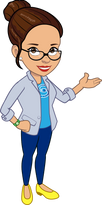10 Takeaways from the Learning & the Brain Conference
- May 8, 2025
- 2 min read

On April 25-27, I journeyed to New York City to participate in the Learning & the Brain Conference. It is not possible to summarize the overall concept, so I will let the organizers do the explaining:
“ This interdisciplinary conference will explore the 'Science of Learning' and ways to use evidence-based strategies to transform teaching, assessments, reading, EdTech, and leadership. Learn ways to improve student memory and learning; cultivate curiosity and foster innovation and exploration; transform teaching through effective and sustainable practices; rethink student assessment, feedback, and grades; leverage emerging technologies and learning spaces; improve reading and literacy; and empower school leaders for the future. “
That alone should make you want to RUN to the webpage to find out more and rush to sign up for the next education conference! https://www.learningandthebrain.com/education-conferences Bring it on!

Still unconvinced? How about some of these session titles:
The Neurobiology of Learning to Learn: What We Think We Become (Fenton)
Developing Teen Minds in the Digital Age (Kuhl)
The Science of Learning and Formative Assessment (Wiliams)
Connect the Dots: A Guide to Teaching Students How and Why to Maximise Memory (Dibner and Taylor)
Engaging the Brain: 20 Unforgettable Strategies for Growing Dendrites and Accelerating Learning (Tate)
And I am just getting started.
Attendees had access to some of the most BRILLIANT minds in cognitive learning (many started as educators). Days were long, but unlike most conferences, when my eyes would glaze over and my fingers would find themselves scrolling through socials, I was GLUED to the speakers. Every tidbit of information was moving into my brain. My hands were ferociously tapping on my iPad to note quotes, facts, and goblets of priceless information.
I got there early to get an up-front seat. I was the last to leave.
Each session modeled so many of the different practices they hoped to share. I repeated information using sign language. I met folks from around the world with Think-Pair-Share. I couldn’t wait until the end of the sessions to chat with other attendees about new discoveries.
And then, I became sad.
Over 1,000 people were in attendance, and hundreds more tuned in over Zoom. UNESCO estimates that there are almost 9.4 million educators on this planet. That’s a lot of missing people who will not get to learn these evidence-based strategies to make learning more impactful and their lives as educators easier.
So now… I offer you my favorite takeaways (in no particular order):
Climate first, learning second (John Almarode)
Without prior knowledge, we are redacting the learning (Carl Hendrick)
The brain works better in a good space (Marcia Tate)
PowerPoint was not meant for long-term learning (Bradley Busch)
AI should be a partner, not a thought leader (Katie Martin)
Education seems to be allergic to cognitive science (Carl Hendrick)
Forgetting is normal (Pooja Agarwal)
Resistance is frustration tolerance (Nina Dibner and Tricia Taylor)
Working memory doesn’t work very well (Carl Hendrick)
There is no learning in lectures (John Almarode)
I could go on forever, but that’s not the best way to learn ;)
Your turn. Ask questions!













Comments